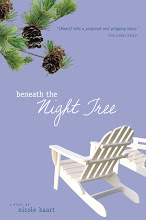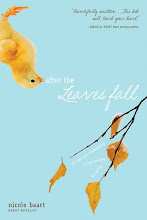I think I spend about as much time every day reading as I do eating. No, I bet I spend more time reading--my meals often consist of the few bites that I can squeeze in while spoon-feeding my baby and making never-ending adjustments to my older son’s habitually imperfect meals. Toddlers are such picky eaters. Anyway, I actually consider each book that I read an important component in my growth as a writer. Not that I aspire to be a copycat, quite the opposite, but reading good writing inspires me. It gives me fresh perspective, enhances my own creativity, and forces me to look at the world with a new set of eyes. I love reading for a million and one reasons.
Yesterday I finished reading Wicked: The Life and Times of the Wicked Witch of the West by Gregory Maguire. It’s one of those books that has been on my reading list for, quite literally, years. I secretly adore all things magical (shhhhh, don’t tell anyone), and I knew long before I ever picked up the book that I would be swept away by Maguire’s rendition of Oz. And I was. It was a wonderful, exciting, spellbinding, impossible-to-put-down book. It was also incredibly thought provoking.
Before I read the book, numerous people told me that Elphaba (the Wicked Witch of the West) would become my favorite heroine. They called her “brilliant, interesting, and fun.” One person assured me that Elphaba was “deliciously wicked.” Okay, brilliant and interesting, yes. But fun? And wicked? I don’t think so…
Though much of the book deals with the nature of evil (it’s a power, an infection, a metaphysical reality, an appetite, an act…), I found Elphaba to be far less wicked than simply misunderstood. Misunderstood by her parents, her superiors, her peers, and, ultimately, her audience of readers. Heroine? The Witch herself would positively abhor being called such a thing. So who is she? I think Elphaba attempts to define herself--at one point near the end of the story she comes clean with her interpretation of evil: it is, above all, a secret. Unknowable, indefinable, nebulous. Just like Elphaba.
While Wicked stirred my imagination and got me thinking about all manner of good and evil, right and wrong, justice and injustice, it also made me wonder about the relationship between writer and reader. It made me realize again that any character I create will be read by a different set of eyes each time my book is opened. That work of fiction, that person I’ve shaped and formed and trapped on paper, will be defined a hundred different ways. She’ll be picked apart, analyzed, and discarded. Or embraced. Who knows? But what if, above all, she is misunderstood?
Will it bug me if people don’t get her? Will I be frustrated if I feel like some readers have completely missed the point? Or is it enough to know that people are thinking about her, even if their conclusions are not what I intended them to be? After all, I suppose beauty (or evil or value or goodness or anything at all) is in the eye of the beholder. How can I expect my character to fall on everyone the same?
And who knows, maybe Gregory Maguire would chuckle at my interpretation of Elphaba. Maybe I have it all wrong and the Wicked Witch of the West was exactly that: a deliciously wicked heroine.
Too bad. I loved her as the antithesis. The misunderstood.
Tuesday, July 10, 2007
Subscribe to:
Post Comments (Atom)










No comments:
Post a Comment